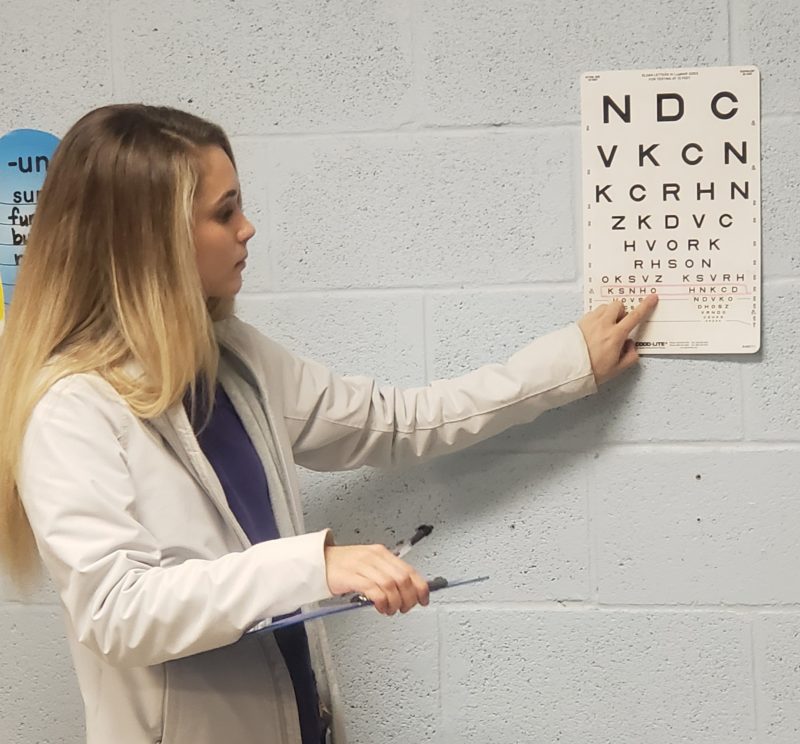
CTE is different from your grandfather’s vocational classes
CELINA – For many decades, a college education was thought to be the jump start to the best careers and highest-paying jobs.
Depending on what someone might want to do in life, that can still be the case, but there’s an additional path that leads to high paying, rewarding jobs and enables young workers to get a head start on career earnings.
Career and Technical Education (CTE), for high school students or adult learners, offers another career option for students and classes have become extremely popular at Clay County High School, where several programs are available.
“CTE has become an integral part of Clay County High School’s course offerings,” said Kim Upton, Clay County school system’s CTE director. “We used to call this vocational education, but through the past several years, it’s become known as Career and Technical Education.
“These classes are hands-on and offer students the ability to develop skills they will use in real life situations,” Upton said. “Career awareness and the opportunity to prepare for a future career is another major CTE focus.”
“Career and technology education can give students what’s needed to succeed in life: technical skills, academic skills and employability skills,” said CCHS Principal Teia Arms. “CTE also helps students understand how what they’re learning applies to the needs of employers.”
CCHS has a very high participation rate in CTE classes, Upton said.
“In the 2021-21 school year, we had a 74.2% CTE concentrator rate, compared to the state average of 49.8%,” Upton said. “A CTE concentrator is defined as a student who takes two or more CTE courses in the correct sequence. Ninety-five percent of all students at CCHS will take a career and technical course at some point.”
Many programs of study to choose from
The number of Program of Study CTE classes has expanded through the years. Decades ago, vocational education in most rural schools was limited to three areas: agriculture, home economics and building trades. Times have changed.
“We offer seven Program of Study classes at Clay County High School, and some of them are dual-credit courses that allow students to get not only high school credit, but credit at the Tennessee College of Applied Technology (TCAT),” Upton said. TCAT-Livingston also partners with CCHS on several dual-credit courses.
CCHS offers Horticulture Science, Human Services, Business Management, Teaching as a Profession, Welding, Nursing Services and Cybersecurity as CTE classes to students in all four grades, schedules allowing.
As juniors and seniors, CCHS students can go to the TCAT main campus in Livingston and take these additional courses: Machining Technology, Industrial Maintenance, Mechatronics, Residential and Commercial Construction, Office Management, Therapeutic Services, Cosmetology, Cybersecurity, Automotive Maintenance and Light Repair, Automotive Collision Repair and Diesel Technology.
Buses run from CCHS to TCAT-Livingston in the morning and at lunch so students can take classes there.
“Many programs now focus on areas typically associated with associate or bachelor’s degrees, such as engineering or business,” Arms said. “Because career-tech-ed classes of all kinds are seen as roads to additional study after high school, they are meant to be more academically rigorous than those in the past.”
Extracurricular opportunities abound

Regardless of whether students are headed for college or the workforce, this type of education will help them prepare for the future, CTE educators say. Even college-bound students can get job experiences to help them define their career plans, identify an appropriate course of study and help pay for tuition.
Regardless of future education or career plans, students can also learn skills that can help them in everyday life. There are also numerous extracurricular activities associated with CTE programs.
“Students involved in CTE have an opportunity to participate in organizations like Future Farmers of America, Future Business Leaders of America and Family, Career and Community Leaders of America,” Upton said.
There are also opportunities to earn various industry credentials, along with work-based learning and job shadowing opportunities with local employers.
“All these things can help students become well-rounded individuals,” Upton said.
Statistics show that nationwide almost half of the students enrolled in high school CTE courses are female. Girls far outnumber boys in health sciences and human services, while boys dominate in areas like information technology, manufacturing and architecture, a CTE-related website said.
Another advantage to a CTE education that might extend past high school is that the TN Promise program provides up to two years of free tuition to any of the state’s community colleges of colleges of applied technology, as well as a handful of four-year universities. Students can get these post-secondary education opportunities for little or no debt and begin their careers months or just a couple of years after high school graduation.
“CTE does more than simply prepare students for careers. It provides students with an opportunity to develop specific academic, intellectual, technical and 21st century skills. These skills are necessary to be successful in a career and in life,” Arms said.








